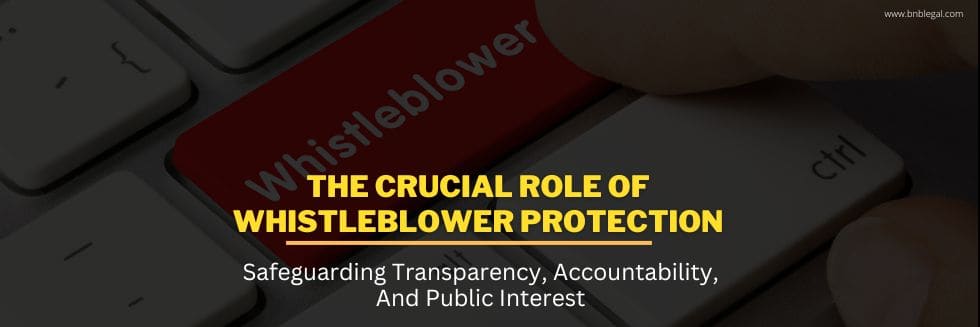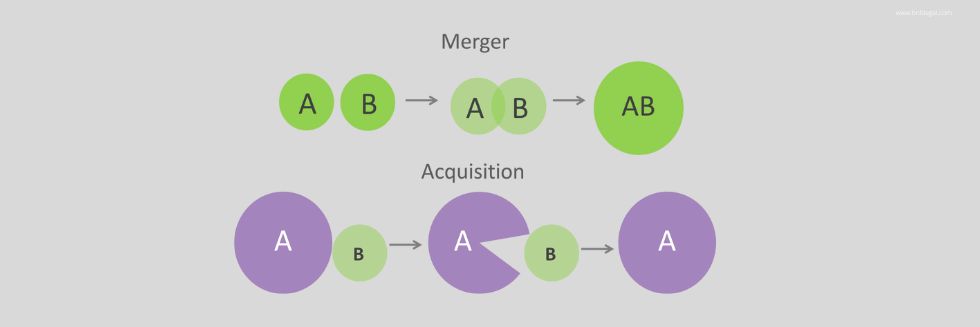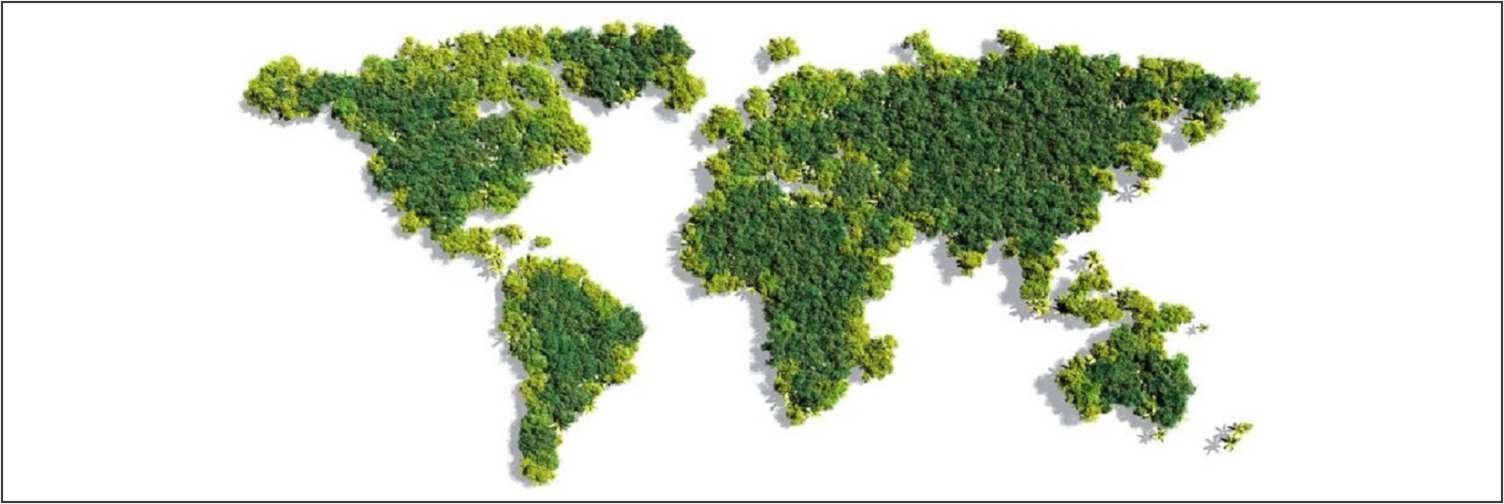Introduction
The Whistle Blowers Protection Act, 2011 (WBPA) provides protection for whistleblowers in India. This law offers a legal framework to protect anyone who reveals gross misconduct, abuse of authority, or corruption in public or private organizations. There are certain rights that are given to whistleblowers in India.
The whistle-blower’s identity must be kept private and should not be revealed without their permission. The law makes it illegal to reveal a whistleblower’s identity. The WBPA forbids any type of victimization against the whistle-blower, including harassment, dismissal, demotion, and other negative actions. The Act provides the whistleblower with protection and remedies if they are victimized. As long as the disclosure is made in good faith and in compliance with the WBPA’s rules, whistle-blowers are exempt from any civil or criminal action resulting from the revelation of information. Whistleblowers are entitled to information about their disclosure and inquiry. They have a right to updates and status reports on the actions taken in response to their disclosure. The Act calls for the creation of a specific agency, the “Competent Authority,” i.e., Central Vigilance Commission tasked with conducting an investigation into the disclosures made by whistle-blowers. The authority’s tasks include conducting an investigation and defending the whistleblower’s interests.
If the Competent Authority considers that a whistleblower has been harmed, it has the authority to offer suitable redress, such as restitution, reinstatement, or any other actions required to safeguard the whistleblower.
Specified punishments such as obstruction, tampering with evidence, and revealing a whistleblower’s identity are all punishable under the WBPA. If found guilty, the penalty might be jail time or a fine.
It is significant to highlight that the WBPA includes disclosures pertaining to government employees, offices, projects, and businesses that are owned or operated by the government. Private sector employees may be protected by other laws, such as the Protected Disclosures under the Companies Act of 2013, or by whistleblowing clauses in their employment contracts or business policies, even if they are not directly covered by the WBPA. To fully understand their rights and the processes involved in making a disclosure, whistle-blowers are urged to examine the Whistle Blowers Protection Act and obtain legal counsel.
Remember that the WBPA does not immediately apply to the private sector, even if it primarily addresses disclosures involving public employees, government agencies, public sector undertakings, and firms founded by the government. Employers’ whistleblowing policies or other laws or procedures, such as the ‘Protected Disclosures’ under the 2013 Companies Act, may provide protection for private sector employees.
To make sure their rights and protections are preserved, whistle-blowers are urged to get familiar with the Whistle Blowers Protection Act, obtain legal counsel if necessary, and follow the suggested processes.
Why Is It Crucial To Protect Whistle-Blowers?
Whistleblowers are essential in revealing wrongdoing, corruption, fraud, or other unlawful actions. They also play a crucial role in promoting accountability and transparency. Whistleblowers are encouraged to come forward and provide information that might otherwise remain secret by the protection provided to them. Protection for whistleblowers aids in spotting and correcting wrongdoing, encouraging responsibility, and guaranteeing openness in both the public and commercial sectors.
Whistleblowers frequently have access to important insider knowledge regarding unethical practices or illegal acts, which can help to prevent and deter wrongdoing. Whistleblowers are incentivized to reveal such malfeasance right away by being protected. Early discovery and intervention can stop future injury, monetary losses, or harm to people, groups, or the general public interest. Whistleblower protection serves as a deterrent by warning prospective wrongdoers that their actions might result in exposure.
- Protecting Public Interest: By disclosing information that might endanger the public’s safety, health, or welfare, whistleblowers frequently operate in the public’s best interest. Whistleblower protection assures that persons who voice their concerns about matters of public interest, such as environmental infractions, workplace dangers, or corrupt government practices, are protected from reprisal. Individuals are given the ability to safeguard the public interest thanks to this protection, which helps to create a more fair and responsible society.
- Promoting Internal Reporting and Ethical Culture: Whistleblower protection promotes an ethical and honest workplace atmosphere. Organizations are better equipped to address problems quickly and take remedial action when workers feel comfortable and supported in reporting internal misbehaviour. A culture that emphasizes honesty, morality, and compliance is fostered via internal reporting procedures and whistleblower protection, which improves governance and organizational health.
- Increasing Public Trust and Confidence in Institutions: The public’s trust and confidence in institutions, both public and private, is increased when they can see that whistleblowers are protected and that their revelations are treated seriously. Protection for informants shows a dedication to responsibility and a readiness to remedy wrongdoings. As a result, the general judicial system, organizations, and regulatory agencies have more popular support.
Overall, the protection of whistleblowers is essential for sustaining morality, encouraging responsibility, averting injustice, and preserving the public good. Society may move towards a more open, responsible, and moral operation of institutions by fostering a climate that fosters and protects whistleblowers.
Whistle-Blower Laws Around The World
India: In India, the act was brought in the parliament in 2011 but was passed in 2014. Because it was so difficult to get it implemented. It is difficult to say which nation has the “best” whistleblower protection because it can vary based on many aspects and criteria. Several nations have passed laws to protect whistle-blowers. But other nations are well known for having strong whistleblower protection laws.
United States: Many people point to the United States as having effective whistleblower protection laws. The False Claims Act which exists in the US, enables private citizens to file qui tam actions on behalf of the government and get a cut of any money that is ultimately recovered. Whistleblowers who disclose infractions of the rules governing commodities and securities are likewise protected and given financial incentives under the Dodd-Frank Wall Street Reform and Consumer Protection Act.
United Kingdom: To safeguard informants, the UK passed the Public Interest Disclosure Act (PIDA). The PIDA protects employees who expose misconduct in their organizations in the public and commercial sectors. It offers defence against wrongful termination, victimisation, and other negative behaviours.
Australia: The Public Interest Disclosure Act of 2013 in Australia creates a framework for protecting whistleblowers in the public sector. Employees who denounce misbehaviour, corruption, or poor management inside government entities are given protection. Whistleblower protection protections are included in the Act.
South Africa: The Protected Disclosures Act in SFA offers protection to employees in the public and commercial sectors who report illegal or irregular behaviour. The Act forbids victimisation and retribution against whistleblowers and gives them the right to file a lawsuit if they are subjected to unfavourable treatment.
Norway: It is frequently claimed that whistleblower protection rules in Norway are strict. The nation has the Whistleblower Protection Act, which offers complete protection to anybody who discloses unlawful or unethical behaviour. Whistleblowers are protected from retribution and given secrecy.
It is important to remember that although these nations are known for having strict whistleblower protection laws, the success of the legislation also depends on how well it is put into practice and upheld. Within a nation, various sectors and industries may have distinct policies regarding whistleblower protection. For a thorough knowledge of whistleblower rights and protections, it is always crucial to refer to the relevant laws and regulations in a given country.
Conclusion
Although the Whistle Blowers Protection Act, 2014 (“Act”) was approved by both Houses of Parliament, notification of the Act has not yet occurred. The Act stated that it was the intention of the legislature to provide a formal process for the reporting of unethical, unlawful, or improper behaviour on the part of an organization’s members. The Act’s application is, however, restricted to public employees and public sector organisations. The Act requires the whistle-blower to reveal his or her identity, but this requirement occasionally may cause discomfort for the whistle-blower as these people typically prefer to remain anonymous in order to protect themselves against any discrimination at their respective workplaces or any adverse actions that may be taken against them because of their gender, race, or other characteristics. The legislative structure in India for whistleblowing, whistleblower protection, and its enforcement has mostly been designed with listed corporations in mind. In order to seek redress for the reporting of wrongdoing and prevent victimisation, the Companies Act, 2013 establishes a “vigil mechanism” for directors and staff of listed companies and other firms stipulated therein.
There is certainly a need for India to learn from countries like America, United Kingdom and Norway and enact a much needful law for whistleblower protection in India to ensure transparency and accountability in public functioning.
This article is written and submitted by Aditya Madhav during his course of internship at B&B Associates LLP. Aditya is a BA.LLB 2nd Year student at Rajiv Gandhi National University of Law, Patiala.







